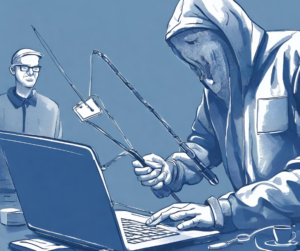Small Business IT: A Closer Look at Cybersecurity
Oct 17, 2023
While large corporations are often the primary target for cybercriminals, small businesses are not exempt from the threat. In fact, small businesses often lack the necessary resources and expertise to combat cyber threats effectively. Here at Crossaction, we have specialized in small business IT solutions that meet the demand of your growing business.
 Understanding the Threat Landscape in Small Business IT
Understanding the Threat Landscape in Small Business IT
Small businesses are increasingly becoming attractive targets for cybercriminals due to their potentially weaker security measures. Hackers may exploit vulnerabilities in a company’s network, steal sensitive customer data, or launch ransomware attacks to extort money. By comprehending the prevalent threats, small business owners can take proactive steps to protect their assets.
Implementing Strong Password Policies
One of the simplest yet most effective cybersecurity measures is to enforce strong password policies. Encourage employees to use unique and complex passwords, regularly update them, and avoid reusing passwords across multiple platforms. Additionally, consider implementing multi-factor authentication (MFA) for an extra layer of protection.
Regularly Updating Software
Outdated software and operating systems often contain security vulnerabilities that cybercriminals exploit. Small businesses should prioritize keeping all software, including antivirus programs and firewalls, up to date. Enabling automatic updates can ensure that the latest security patches are installed promptly.
Educating Employees
Human error is one of the leading causes of cybersecurity breaches. Educating employees about cybersecurity best practices, such as identifying phishing emails, avoiding suspicious websites, and refraining from sharing sensitive information, is crucial. Conduct regular training sessions and provide resources to keep employees informed about the latest threats.
Securing Wi-Fi Networks
Small businesses frequently rely on Wi-Fi networks, making them potential entry points for hackers. Ensure that your Wi-Fi network is password protected, uses strong encryption (WPA2 or WPA3), and change default router passwords. Segregating guest Wi-Fi networks from internal networks can also enhance security.
Cybersecurity is a pressing concern for small businesses, as they often lack the resources and expertise to combat sophisticated cyber threats. By staying informed about the evolving threat landscape and implementing essential security measures, small businesses can significantly reduce the risk of falling victim to cyberattacks. Prioritizing cybersecurity is not only a responsible business practice but also critical for maintaining customer trust and safeguarding valuable data.
For more information on Crossaction’s small business IT plans, contact us for a consultation.

